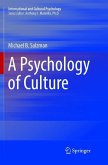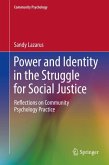This thought-provoking treatise explores the essential functions that culture fulfills in human life in response to core psychological, physiological, and existential needs. It synthesizes diverse strands of empirical and theoretical knowledge to trace the development of culture as a source of morality, self-esteem, identity, and meaning as well as a driver of domination and upheaval. Extended examples from past and ongoing hostilities also spotlight the resilience of culture in the aftermath of disruption and trauma, and the possibility of reconciliation between conflicting cultures. The stimulating insights included here have far-reaching implications for psychology, education, intergroup relations, politics, and social policy.
Included in the coverage:
· Culture as shared meanings and interpretations.
· Culture as an ontological prescription of how to "be" and "how to live."
· Cultural worldviews as immortality ideologies.
· Culture and the need for a "world of meaning in which to act."
· Cultural trauma and indigenous people.
· Constructing situations that optimize the potential for positive intercultural interaction.
· Anxiety and the Human Condition.
· Anxiety and Self Esteem.
· Culture and Human Needs.
A Psychology of Culture takes an uncommon tour of the human condition of interest to clinicians, educators, and practitioners, students of culture and its role and effects in human life, and students in nursing, medicine, anthropology, social work, family studies, sociology, counseling, and psychology. It is especially suitable as a graduate text.
Included in the coverage:
· Culture as shared meanings and interpretations.
· Culture as an ontological prescription of how to "be" and "how to live."
· Cultural worldviews as immortality ideologies.
· Culture and the need for a "world of meaning in which to act."
· Cultural trauma and indigenous people.
· Constructing situations that optimize the potential for positive intercultural interaction.
· Anxiety and the Human Condition.
· Anxiety and Self Esteem.
· Culture and Human Needs.
A Psychology of Culture takes an uncommon tour of the human condition of interest to clinicians, educators, and practitioners, students of culture and its role and effects in human life, and students in nursing, medicine, anthropology, social work, family studies, sociology, counseling, and psychology. It is especially suitable as a graduate text.








